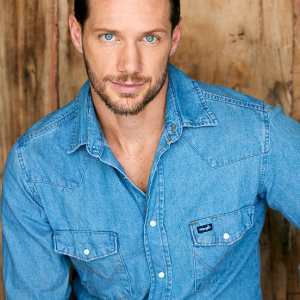Note: we are republishing this story which originally made the news in March 2024.
In a recent episode of her widely followed podcast, Abbie Chatfield, well-known for her appearances on The Bachelor, ignited a fiery debate among her audience by cautioning against the casual use of the term “females.” In her impassioned discourse, she not only labeled it as offensive but also as dehumanizing, particularly towards women and transgender individuals.

For Abbie, the term “females” is not merely a neutral descriptor but carries with it a baggage of sexism and exclusion. Drawing parallels to derogatory slurs, she pointed out how it reduces individuals to mere biological categories, devoid of their humanity and individuality. This reductionism, she argued, not only undermines women’s autonomy but also erases the experiences and identities of transgender people, further perpetuating harmful stereotypes and marginalization.

What seemed to particularly irk Abbie was the implication inherent in the term “females” – that women are somehow lesser beings, dependent on men for their existence and purpose. By framing women in this light, she contended, the term reinforces outdated gender norms and perpetuates harmful stereotypes about women’s roles in society.
Abbie further delved into the historical and societal connotations of the term, suggesting that its usage reflects and perpetuates systemic inequalities and patriarchal structures. By framing women as passive recipients of male protection and provision, the term “females” not only diminishes their agency but also contributes to the normalization of gender-based violence and discrimination.

Addressing the question of whether it’s offensive for women themselves to use the term, Abbie raised the specter of internalized misogyny. She argued that women, too, can unwittingly perpetuate harmful gender stereotypes and language, internalizing and reproducing the very same oppressive ideologies that seek to subjugate them.
While Abbie’s remarks found resonance among a significant portion of her audience, eliciting agreement and support, they also sparked vigorous dissent and debate. Some pushed back against what they perceived as an overemphasis on semantics, arguing that the focus should be on substantive issues facing women and marginalized communities rather than linguistic nitpicking.

Yet, the significance of language in shaping perceptions and attitudes towards gender and identity cannot be overstated. Words have the power to both reflect and reinforce societal norms and power structures, and as such, it’s crucial to critically examine and challenge the language we use, particularly when it comes to issues of gender and inclusivity.
In the end, Abbie’s impassioned plea serves as a reminder of the importance of language in shaping our understanding of the world and our relationships with one another. Whether one agrees or disagrees with her stance, her words have undeniably sparked a vital conversation about the power of language in perpetuating or challenging systems of oppression and marginalization.
Sources: Daily Mail




Your article helped me a lot, is there any more related content? Thanks! https://accounts.binance.com/ph/register-person?ref=B4EPR6J0
Thank you for your sharing. I am worried that I lack creative ideas. It is your article that makes me full of hope. Thank you. But, I have a question, can you help me?
Your article helped me a lot, is there any more related content? Thanks!
Thank you for your sharing. I am worried that I lack creative ideas. It is your article that makes me full of hope. Thank you. But, I have a question, can you help me?
I don’t think the title of your article matches the content lol. Just kidding, mainly because I had some doubts after reading the article.
Your point of view caught my eye and was very interesting. Thanks. I have a question for you.
Thank you for your sharing. I am worried that I lack creative ideas. It is your article that makes me full of hope. Thank you. But, I have a question, can you help me?
Vitamin B12 and folate deficiencies may be as a end result of poor
diet consumption or from gastrointestinal circumstances that prevent absorption of those nutritional
vitamins. These embody pernicious anemia, inflammatory bowel ailments,
celiac illness, gastritis, and certain gastro-intestinal surgeries.
Latest studies show that there’s a want
for blood transfusions each 2 seconds.
This condition can signify a quantity of underlying issues, starting from benign to severe health
concerns. Excessive hematocrit levels may cause blood to become thicker, which may enhance the danger of blood clots, stroke,
or heart assault. The hematocrit take a look at offers a snapshot of the proportion of pink blood cells in your blood however doesn’t establish the precise explanation for irregular
ranges. Further exams, similar to hemoglobin measurements
or iron studies, could also be essential for a more complete diagnosis.
One end of a microhematocrit tube is inserted into the blood
droplet. Capillary attraction will draw the blood up the slim glass tube.
A lining of heparin, an anticoagulant, retains the blood from clotting because it makes contact with the tube.
Iron is absorbed within the small gut (duodenum and first part of the jejunum).
Screening for anemia is a vital part of caring for a kid. Many issues brought on by anemia can be prevented when anemia in children is recognized at an early stage.
In most cases, anemia can be recognized with a few simple blood checks.
The American Academy of Pediatrics at present advises screening for anemia with a
hemoglobin test at age 1. It should include in search of danger
elements for iron deficiency anemia. If the hemoglobin stage is
low, more testing is needed to determine the kind of anemia.
If a child has any threat components at any age, a check
for anemia ought to be carried out.
Hold studying to discover the causes, symptoms, and coverings for prime and low hematocrit.
Plasma is the liquid part of your blood and is made from protein,
salts, and water. The deadline to have twice the impression to advance healthcare
research is May 15. Whereas the rotor is spinning, centrifugal
pressure causes the blood within the tubes to separate into layers based on their density.
It is then adjusted so the subject’s skin might be penetrated to the correct depth.
All you want is the name of the take a look at and the take a look at worth, as listed on your CBC report
that you just obtain from your doctor. You’ll want to provide both pieces
of knowledge to obtain an evaluation. C-reactive protein (CRP) is made by your liver when tissues in your body are inflamed.
Hematocrit is a useful parameter that measures the proportion of red blood cells within the complete blood
quantity. This complete article aims to offer a thorough understanding of hematocrit, including its
function, measurement, interpretation, and clinical significance in assessing blood quantity standing.
It is necessary to notice that the Hematocrit take a look at is solely
one of several exams used to judge blood health.
It is usually interpreted along side other blood tests, corresponding to hemoglobin ranges and red blood cell rely, to offer a extra complete assessment of a
person’s blood standing. But, if you have a high pink blood cell rely, it’s all the time a good idea to have additional testing carried out.
This way, your healthcare provider can discover
the cause and decide if therapy is necessary.
The take a look at involves drawing a small blood sample from a vein in your
arm or a finger prick.
Elevated EPO levels would possibly indicate a secondary cause, such as
persistent hypoxia, while low or normal EPO
ranges might counsel a primary cause like polycythemia vera.
A CBC is a complete check that measures a number
of components of the blood, together with pink blood
cells, white blood cells, hemoglobin, hematocrit, and platelets.
This test supplies a broad overview of a affected person’s hematological well being and might
help determine abnormalities in pink blood cell
manufacturing or destruction. Diets rich in iron, vitamin B12,
and folate can assist purple blood cell production. The following are some widespread culprits behind a
low HCT, starting from dietary deficiencies and blood loss to
underlying medical circumstances. Understanding these causes is crucial Best Oral Steroids For Cutting proper analysis and
treatment, paving the method in which to restoring your pink blood cell levels and total health.
Most people are not treated with medicines or procedures if the
hematocrit is just barely above or beneath the conventional ranges.
Some sufferers with very low hematocrits could require intravenous iron, transfusions or medicines to stimulate the production of pink cells by the bone marrow.
Some patients with very high hematocrits due to ailments, similar to polycythemia rubra vera, may require blood letting (blood removal).
If your hematocrit degree is under the conventional range for your sex,
your supplier might do more tests to verify in your purple blood cell levels.
HCT measurement wants more blood volume for correct processing and evaluation.
Similarly, inflammatory bowel illness (IBD)(6) can contribute to anemia and low hematocrit
by impairing the absorption of essential nutrients in the digestive tract.
These vitamins, together with iron, copper, vitamin B12, and folate, are essential for the production of RBCs.